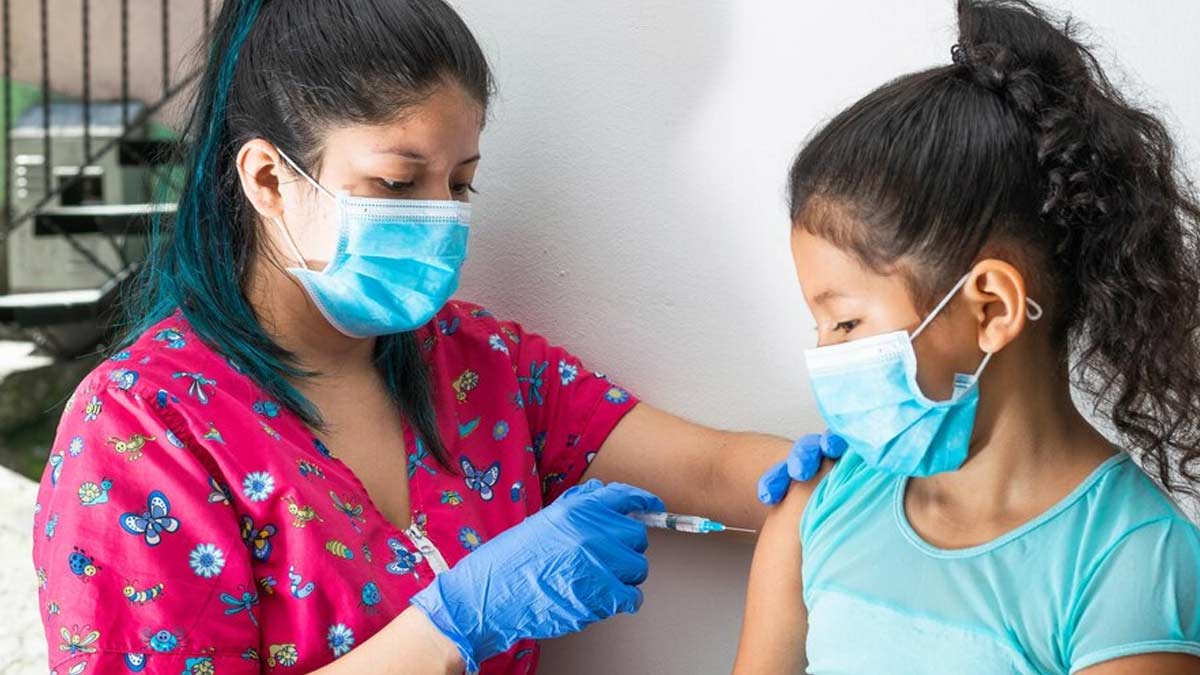
Every year, we observe World Immunisation Week from April 24 to April 30 to highlight the importance of vaccines and to make people aware of the diseases that are preventable by vaccines. It is an undeniable fact that vaccinations are a public health triumph, as they not only focus on individual wellbeing but also promote the overall health of entire populations.
Unfortunately, vaccination coverage varies greatly between and within countries.
Despite the fact that urban populations have better access to healthcare, the urban poor, who are the low-income residents of cities, face great difficulties in receiving proper vaccinations and lack awareness regarding the same. This is why these communities often struggle with crowded living conditions and limited access to healthcare, making them breeding grounds for preventable diseases.
Also Read: Difference Between Immunisation and Vaccination Explained
On the occasion of World Immunisation Week 2024, the OnlyMyHealth team spoke with Dr Shanti Pantvaidya, Executive Director, Society for Nutrition, Education and Health Action (SNEHA), to discuss the challenges faced by urban poor communities when it comes to immunisation and the steps that can be taken.
The Challenges

According to Dr Pantvaidya, one of the biggest challenges is a lack of awareness and knowledge.
She says, “While most of the urban poor communities are aware of immunisation, what they lack is information about the age at which they should receive immunisation, which vaccination they should get, where they can be accessed, and above all, how important it is.”
As per the doctor, the lack of access to the right knowledge and information contributes to low immunisation rates, especially among people belonging to urban poor communities.
She says, “Such communities can be influenced by myths and misconceptions, and that can discourage them from taking the vaccines. They have to get knowledge from those they can trust. This could include, other than the doctors and nurses, ASHA workers.”

She further recalls the COVID times and says, “We did a study on the uptake of the COVID-19 vaccine and their perceptions about these vaccinations. We realised that for any kind of vaccination (including immunisation for COVID-19), the most important factor is to gain trust, improve knowledge on immunisation, and help them convert this knowledge into practice.”
Dr Pantvaidya also highlights how vaccine hesitancy is a challenge and emphasises the need to develop trust and improve knowledge regarding the due dates, the need for vaccination, and at what age the child should be given which vaccine, as well as sending an alert or doing a reminder visit to the communities.
In addition, several other factors can contribute to low immunisation rates in urban poor communities, including challenges like poverty, limited access to healthcare facilities, and inconvenient clinic hours for working parents.
These combined factors create barriers that prevent children in urban poor communities from receiving the vital protection of recommended vaccinations.
Also Read: 4 Important Vaccines Teenagers Should Get: Parents Make Note
Strategies To Increase Immunization Rates In Urban Poor Communities
.jpg)
“Through our years of experience, we have gained several strategies, and now we are attempting to do the same through technology. We are piloting to reach the members of the members of the urban community who have children in the age range of 0–2 years, where mobile phone penetration is good, through chatbots and phone calls to provide knowledge and regular alerts. We have just finished two pilots of this program and while we are yet to ascertain how the community responds, we are hopeful that our further work will enlighten us on how immunisation coverage can be improved through technology in the future,” Dr Pantvaidya tells the OnlyMyHealth team.
She adds, “Immunisation is very vital because it prevents debilitating illnesses in childhood and extends protection to later life too. These infectious diseases can otherwise cause a lot of mortality and morbidity.”
Morbidity means when the child falls ill often, it could trip the child into malnourishment, which in turn makes the child more susceptible to illnesses. Thus, setting up a cycle of illness-malnourishment-illness.

Preventing illnesses through immunisation, paying attention to nutrition, and treating illnesses promptly can break this vicious cycle.
As far as the government and health authorities are concerned, the doctor says that they have been very proactive when it comes to immunisation because of the committed SDG (Sustainable Development Goals) targets.
She also encourages community volunteers by introducing community outreach programs and working with local influencers to establish a good link between the community and the public system.
On an individual level, you could also do your part by educating yourself about the vaccination schedule and its importance, while also spreading the right information to others.
Also watch this video
How we keep this article up to date:
We work with experts and keep a close eye on the latest in health and wellness. Whenever there is a new research or helpful information, we update our articles with accurate and useful advice.
Current Version